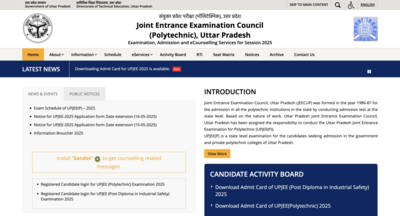Why is Trump slashing US STEM education at a time of global tech competition?

In a controversial move that has drawn sharp criticism from educators, tech leaders, and policy experts alike, US President Donald Trump has proposed a sweeping reduction in funding for STEM (science, technology, engineering, and mathematics) education. His administration’s recent budget plan includes a 75% cut to STEM education funding through the National Science Foundation (NSF), along with an overall reduction of more than 50% to the NSF’s total budget.The timing of this proposal is especially striking. Just days after delivering his 100-day address at Macomb Community College in Warren, Michigan—where he emphasized economic opportunity and the promise of technical education—Trump’s budget puts at risk one of the few remaining affordable pathways for Americans to secure middle-class, future-proof jobs. As reported by Forbes, this move stands in stark contrast to Trump’s stated goal of bolstering American leadership in emerging technologies.A direct threat to community colleges and technical trainingCommunity colleges are a cornerstone of US workforce development, particularly in STEM fields that require more than a high school diploma but not necessarily a four-year degree. These institutions play a key role in training the 37 million skilled technical workers who power critical industries such as manufacturing, aerospace, and healthcare. NSF funding has long supported these efforts by providing crucial grants and recognition that also help attract private and philanthropic investment.“For 75 years, the NSF has funded STEM workforce training at America’s community colleges,” Forbes reported. Without this support, institutions like Macomb and others across the nation may be forced to cut programs that directly prepare students for high-demand jobs in AI, biotech, cybersecurity, and semiconductors.AI and biotech education at riskThe proposed cuts threaten emerging technology programs that are already yielding results. Miami Dade College, for example, has seen booming enrollment in its AI education programs, developed through NSF support. As Forbes noted, students from a wide range of backgrounds, including working adults with bachelor’s degrees, are turning to community colleges to gain practical, industry-relevant skills.Under another NSF grant, Miami Dade has partnered with Houston Community College in Texas and the Maricopa Community College District in Arizona to build a nationwide AI education consortium. This effort, involving major employers like Microsoft and Google, now faces uncertainty due to the budget proposal.Biotechnology is also under threat. A recent report from the Congressional National Security Commission on Emerging Biotechnology, chaired by Sen. Todd Young, urged the US to significantly increase investments in biotech education over the next three years. NSF’s long-standing support in this area includes more than $1.5 billion invested across over half of the nation’s 1,200 community colleges since 1992. These investments support cutting-edge workforce training in regenerative medicine, textiles, automotive tech, and more.Undermining national security and economic growthAs Forbes reported, leading economists, venture capitalists, and tech executives, including Microsoft President Brad Smith, have warned that cuts to the NSF will undermine national security, economic growth, and the country’s global standing in tech innovation. They argue that no other federal agency matches the NSF’s ability to support community colleges in advancing science and engineering education.Janet Spriggs, president of Forsyth Tech Community College, told lawmakers on Capitol Hill that her college’s biotechnology impact “would not be possible without NSF funding,” Forbes reported.A puzzling shift amid global competitionThe US is already in a tight race with other nations to lead in artificial intelligence, biotechnology, and other high-stakes fields. The NSF’s role in launching initiatives like the $3 million program co-funded with philanthropy—designed to enhance community college training in areas aligned with the CHIPS and Science Act—represents one of the most forward-looking federal investments in recent years.Forbes emphasized that pulling back now could jeopardize years of progress. As global competitors increase their own investments in tech and workforce development, the Trump administration’s budget proposal raises a stark question: Why would the US step away from the very tools that power its innovation, security, and economic resilience?




